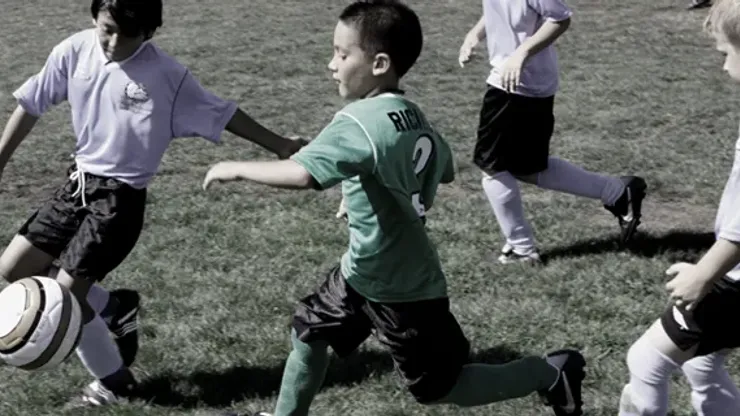The public’s awareness of soccer’s concussion crisis has improved dramatically over the past year. With episodes such as Christoph Kramer’s during the World Cup final, Hugo Lloris against Everton two seasons ago and many others, the tide has turned in concussion awareness – an important and necessary step.
Now, with the settlement of a lawsuit involving US Soccer and youth soccer clubs, a new recommendation has been made: ban all heading below the U-11 level. It’s a potential watershed moment, one that not only makes the federation look prescient but will also focus youth development on skills sorely lacking in US players.
ESPN broadcaster and former New England Revolution forward Taylor Twellman has been soccer’s staunchest and most vocal advocate of concussion awareness for years after the many he suffered during his playing career. As he mentioned on a recent appearance on ESPN’s “Outside the Lines,” when players aged eight through 10 play without coaches, they’re not naturally thinking about heading the ball. He also mentioned that in off-camera talks with the multi-national cast he worked with on ESPN’s World Cup coverage, most said 11 was the earliest they started heading the ball. The first skills most young players develop are with their feet. Whatever headers’ trauma is on a developing brain, it’s a skill that can wait until players are more physically developed.
What has turned out to be the most appalling part of increased awareness is the lack of education most have about the risk of head injuries. The reaction to the ban has been surprisingly, yet somehow unsurprisingly, mixed, with some reacting harshly to the proposed ban. But heading is not the most important skill a nine-year-old soccer player should be learning, regardless of what the risks are, and with so many young kids being coached by parents unaware of the dangers, the wrong parts of the game can be emphasized.
Maybe part of the blowback is American sport sensibilities, which may be coming to light in an ugly way. We value competition and winning above all else, including the experiences of playing and learning. In my own experiences, playing soccer up until age 10 was all about winning, whatever I learned about how to play the game be damned. Watching my sister, who played soccer from age six through her senior year in high school, the emphasis on specific skills and free play to learn on one’s own time was lessened. The success of a nine-year-old whose father is coaching the team seems more important than whether his son is learning the game, growing as a player or even sometimes having fun.
Around the world, that isn’t necessarily the case. Heading the ball is a small island in a vast sea of these examples. Here, whatever it takes to win, even if it means heading the ball with a technique that is far from correct, or keeping a player in when they have taken a blow to head and should be sitting, can and will be done.
The overall issue of concussions in soccer is so complex that even some of what has been mentioned here is reductionist. Banning headers for players under 11 is certainly an important step in preventing brain trauma that could lead to further problems, and it may benefit players by focusing their time on different skills, but as the reaction to the ban has shown, all of us still need more education on what and why this issue is one of the biggest facing the game.
Maybe it’s our own naiveté, maybe it’s our culture, maybe it’s that education on technique and issues is lacking, but whatever the combination is, this moment could be transformative in the way the game is played in this country. And that can only be a good thing.
200+ Channels With Sports & News
- Starting price: $33/mo. for fubo Latino Package
- Watch Premier League, Women’s World Cup, Euro 2024 & Gold Cup
The New Home of MLS
- Price: $14.99/mo. for MLS Season Pass
- Watch every MLS game including playoffs & Leagues Cup
Many Sports & ESPN Originals
- Price: $10.99/mo. (or get ESPN+, Hulu & Disney+ for $14.99/mo.)
- Features Bundesliga, LaLiga, Championship, & FA Cup
2,000+ soccer games per year
- Price: $5.99/mo
- Features Champions League, Serie A, Europa League & Brasileirāo
175 Premier League Games & PL TV
- Starting price: $5.99/mo. for Peacock Premium
- Watch 175 exclusive EPL games per season






